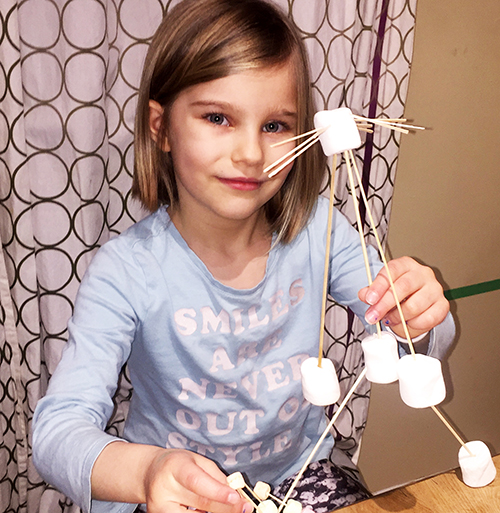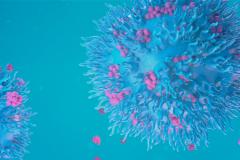Tuesday’s parents describe her as an active, happy six-year-old who loves singing and fashion. She doesn’t have allergies or asthma – and there’s no family history of either – but she’s played an important role in a national five-year study investigating the genetic and environmental causes of these common, chronic diseases.
Asthma and allergy affect one in three Canadian children and are a major reason for visits to the emergency department. The most common chronic disease of childhood, asthma affects one in seven Canadian children and costing the health care system more than $2-billion per year.

Tuesday and her parents, Sam Shoichet and Kristen Gagnon, are one of 3500 families taking part in the Canadian Healthy Infant Longitudinal Development (CHILD) study and one of approximately 700 families recruited through BC Children’s Hospital and BC Women’s Hospital + Health Centre, agencies of the Provincial Health Services Authority.
Since the study launched in 2008, investigators have tracked the health, growth and environments of kids from birth to age five and made important discoveries about how asthma and allergies develop.
In 2015, Dr. Stuart Turvey, BC Children’s investigator and lead of the Vancouver study site, found that children who are missing four types of gut bacteria at three months of age are more likely to develop asthma. Dr. Turvey and his colleagues were recently awarded $9.1 million through Genome Canada’s 2017 Large-Scale Applied Research Project Competition: Genomics and Precision Health competition to further this research, create new diagnostic tools and develop new treatments that will replace missing gut bacteria to stop asthma before it starts.
Other CHILD Study findings have identified the protective factors of breastfeeding, the impact of traffic pollution on the development of asthma, the relationship between gut bacteria and food sensitivities, and more.
Investigators are now extending the study by inviting families back for eight- and nine-years visits.
“We’re thrilled with the results of this research and the potential it holds to change the way parents relate to and care for their kids in the first few years of life,” says Kristen.
“We hope that when Tuesday grows up she’s proud to know that she was part of this and that she is helping other kids lead healthier lives.”
Recruited when she was still pregnant, Kristen says her main contribution to the CHILD study was the regular completion of multiple questionnaires on their stress, health, diet, living conditions and daily activities. It was no small task for a busy parent; since the study began, each family has filled out over 400 forms, some 10 or more pages in length.
CHILD Study Town Hall
Sam took the lead for most of the clinic and home visits. Like most CHILD Study families, they were tested for allergies and had their lung function assessed; they contributed cord blood, breast milk, urine and blood samples; they brought in dirty diapers, and even let researchers vacuum parts of their house. All-in-all, researchers collected over 500,000 separate biological samples from participating parents and children, as well as dust from their homes.
Nationally, 92 per cent of the families recruited to take part in the study were still participating after five years. It’s an uncommonly high figure for a study of this size and length.
“Every step of the way, we’ve been amazed and impressed by the dedication and enthusiasm of our families,” says Dr. Turvey. “As a result of their commitment, researchers across Canada have access to a rich collection of genetic, biological and environmental data to further research into how to reduce the risk of asthma and allergy, and ultimately prevent these diseases from ever developing.”
Dr. Turvey is a Pediatric Immunologist, Investigator, and Director of Clinical Research at BC Children’s Hospital. He is the Aubrey J. Tingle Professor of Pediatric Immunology and Professor with the Department of Pediatrics at the University of British Columbia.
The CHILD Study is supported by the Allergy, Genes and Environment Network (AllerGen NCE Inc.), CIHR, Health Canada, Environment Canada, Canada Mortgage and Housing Corporation, and the Childhood Asthma Foundation.




